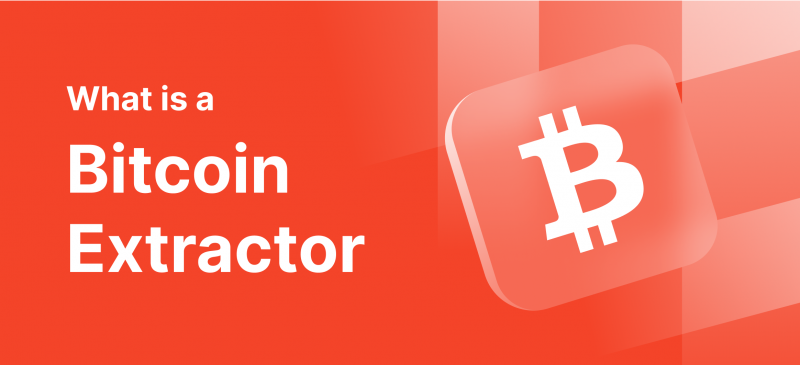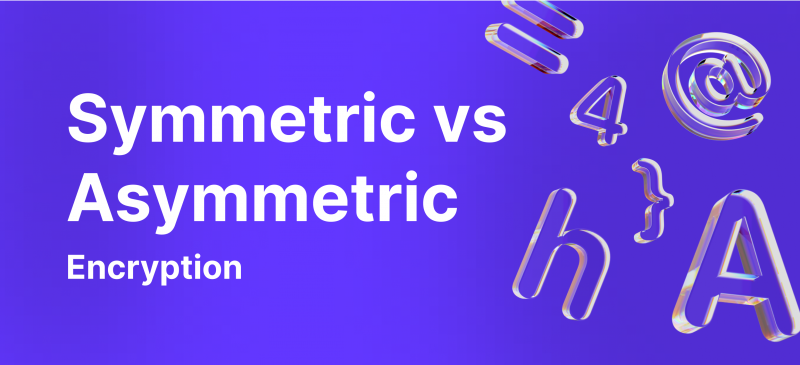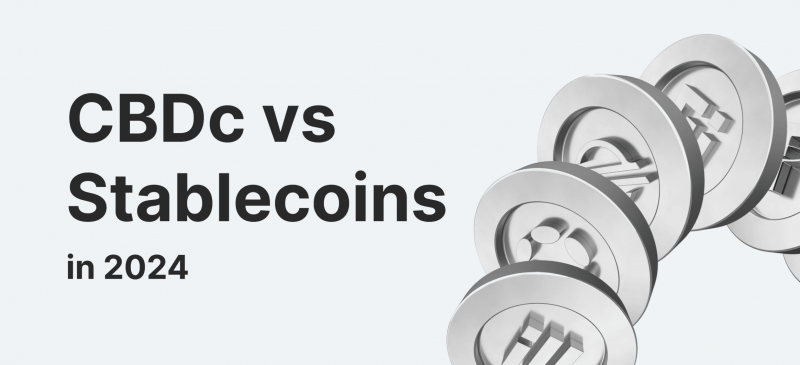The birth of decentralised systems, alongside benefits, brought a new type of problem, like fraudulent activities, that needs to be addressed. The first cryptocurrency, Bitcoin, has completely changed the online financial market by providing unmatched investment and innovation opportunities. Bitcoin extractors are essential to this network because they analyse transaction data, reveal financial flows, and support investigations. Now, let’s explore what Bitcoin extractor is and learn about its role, importance, and effects on the environment.
Key Takeaways
- Bitcoin extractors are essential tools for analysing transactions and gaining important information for forensic investigation and legal compliance.
- The use of extractors highlights the need to strike a balance between privacy and transparency. Because they may be able to link transactions to specific individuals, this creates privacy concerns.
- When selecting a Bitcoin extractor, considerations including hash rate, power consumption, and cost are critical to ensure optimal performance in Bitcoin mining.
Understanding Bitcoin Address Extractors
Specialised instruments called Bitcoin address extractors are made to examine transactions on the network. These tools are essential for tracking, mapping, and tracing Bitcoin transactions. They also offer insightful information for forensic analysis, regulatory compliance, and transaction monitoring, among other uses.
The demand for tools capable of analysing the Bitcoin blockchain—a public ledger that documents every transaction on the network—led to the creation of Bitcoin extractors. Every transaction ever conducted is stored on the blockchain, complete with the sender and recipient addresses, the amount of Bitcoin sent, and a unique transaction ID.
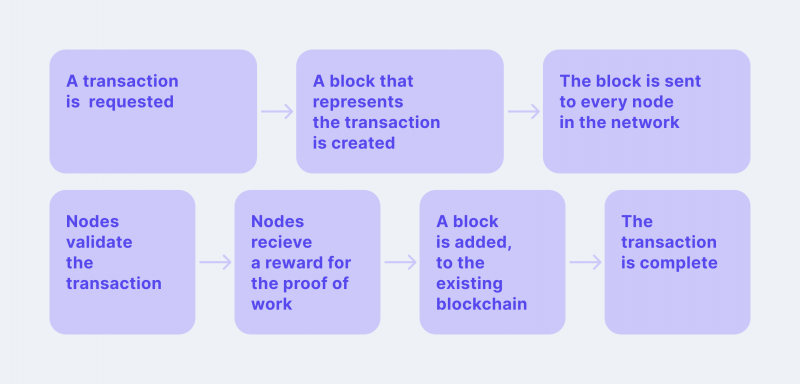
The main goal of Bitcoin address extractors is to extract data from the blockchain, particularly that related to Bitcoin addresses and validating transactions. After that, this data can be examined for trends, financial flows, and evidence of illegal activity like fraud and money laundering.
Financial institutions, regulatory organisations, and law enforcement agencies now depend heavily on Bitcoin extractors to track and manage Bitcoin transactions. Researchers and amateur investors use these technologies to monitor money movements and obtain insights.
All things considered, the Bitcoin address extractor is a powerful instrument vital to analysing transactions in the Bitcoin network. They offer insightful data for a range of uses.
Bitcoin Extractor NYT Mini: The term “Bitcoin extractor” has been used in crossword puzzles in the NY Times, indicating Bitcoin’s widespread acceptance.
How Bitcoin Extractors Work
The blockchain, which contains a record of every Bitcoin transaction, is studied by Bitcoin extractors as part of their operation. Below is a thorough breakdown of the steps involved:
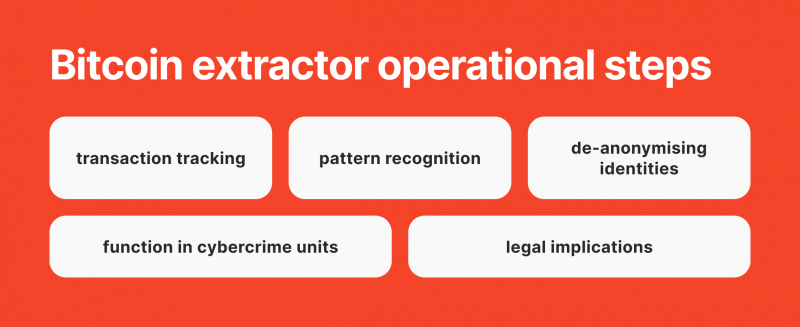
1. Transaction Tracking
They sift through the blockchain to track individual transactions. They map out the movement of funds by monitoring the path Bitcoins take as they travel from wallet to wallet.
2. Pattern Recognition
These technologies employ advanced algorithms to identify patterns that indicate unlawful actions, like funding illicit enterprises or money laundering. Although there is a degree of uncertainty involved, extractors may be able to connect Bitcoin wallets to real-world identities by examining transaction patterns and frequencies.
3. De-Anonymising Identities
De-anonymising Bitcoin addresses is one of the primary purposes of Bitcoin extraction. Even while Bitcoin transactions are pseudonymous, which means they are not connected to actual identities, they may be able to connect extracted addresses to specific people by looking at other extracting data and transaction patterns.
4. Function in Cybercrime Units
As part of their toolkit to combat digital crimes, law enforcement and cybercrime units employ Bitcoin extractors. These instruments are used to locate and dismantle Bitcoin-based illicit operations, including drug trafficking, ransomware payments, and other cybercrimes.
5. Legal Implications
The information acquired by Bitcoin extractors might be essential in court since it provides verifiable proof of financial transactions connected to illicit activity. However, other obstacles, such as privacy-focused cryptocurrencies like Monero, also present severe difficulties for extractors.
Does Bitcoin Extraction Contradict Privacy?
Although necessary for confirming transactions and preserving the blockchain’s integrity, bitcoin extraction creates problems with confidentiality for users. The procedure could jeopardise the privacy that many Bitcoin users cherish by examining transactions and connecting them to actual individuals. In the cryptocurrency ecosystem, this conflict between the requirement for transaction openness and the demand for anonymity is a complicated problem.
On the one hand, the security and immutability of blockchain transactions depend heavily on transparency. It keeps customers from making duplicate purchases and enables them to confirm the legitimacy of transactions. However, this transparency also implies that every transaction is exposed to the public, which raises privacy issues.
For instance, people who conduct legal transactions would not want their financial operations readily traced. They might worry that their transactions could be followed and observed, even though they like the secrecy of cryptocurrencies.
However, blockchain’s transparency can be a very effective weapon in the fight against illicit activities like money laundering and the financing of terrorism. Law enforcement and regulatory organisations can use Bitcoin extractors to track the movement of funds and identify those engaged in illicit activity. This can support maintaining the integrity of the financial system and preventing criminality.
In general, the privacy issues of extracting Bitcoins show how important it is to balance privacy and transparency. Finding strategies to preserve user privacy while maintaining transaction security and legality is crucial.
Choosing a Bitcoin Extractor
Several essential aspects should be considered while choosing a Bitcoin extractor to guarantee optimum performance and cost-effectiveness. A crucial aspect to consider is the hash rate, which denotes the rate at which a miner can decipher cryptographic riddles. A greater hash rate indicates increased mining speed and reward possibility.
Power usage is also significant because mining operations can use a lot of energy. Miners should consider a Bitcoin extractor’s energy efficiency to reduce operating expenses and environmental impact.
Cost is another essential factor to consider because the money needed to buy a Bitcoin extractor can vary depending on the model and brand. Miners must evaluate the possible returns against the upfront costs to choose the most economical course of action.
Bitmain, MicroBT, and Canaan Creative are among the most respected names in the Bitcoin extraction business. These businesses provide a variety of models to meet certain spending limits and performance standards. Miners should investigate these manufacturers and models to select the extractor that best meets their demands.

The Nuix Bitcoin Extractor is a well-known Bitcoin extractor with a reputation for dependability and effectiveness. This extractor has become popular among miners because it can compete successfully in the cryptocurrency market and mine Bitcoins efficiently.
To sum up, selecting the best Bitcoin extractor is crucial to enhancing mine productivity and earnings. Miners can consider variables like hash rate, cost, and power consumption to choose an extractor that suits their demands and helps them compete in Bitcoin mining.
Last Remarks
Bitcoin extractors are essential tools that offer important insights into the cryptocurrency industry’s trends and practices. They are anticipated to become more crucial to cybersecurity and law enforcement initiatives as time goes on, supporting the maintenance of the blockchain network.
